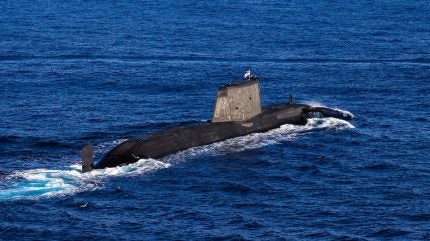
The UK is journeying to fortify its nuclear capabilities with a multi-million-pound commitment and collaborative efforts between government and industry stakeholders.
Prime Minister Rishi Sunak announced a strategy to fortify the UK’s nuclear sector. The initiative, a ‘national endeavour,’ aims to invigorate defence nuclear capabilities while fostering economic growth and job creation.
The cornerstone of the Prime Minister’s plan is an investment of at least £763m ($961m) by 2030, with contributions from both public and private sectors. This funding will be channelled into various initiatives, including skills development and job creation. Emphasising the need for a skilled workforce to meet the industry’s demands, Sunak highlighted the creation of over 8,000 career opportunities and the goal of generating 40,000 new jobs within the decade.
Central to the government’s strategy is the rejuvenation of Barrow-in-Furness, a hub for the UK’s nuclear submarine-building efforts. With a more than £200m commitment over the next decade, the government aims to transform Barrow into a more attractive destination for nuclear professionals.
Russia has been intensively developing hypersonics capable of carrying nuclear warheads. As the threat of nuclear action by Russia is heightened by the conflict in Ukraine, combined with the collapse of the JCPOA, the UK is increasingly committed to upholding its nuclear deterrent, as per GlobalData’s “The UK Defense Market 2023-2028” report.
However, the UK’s Trident nuclear programme has recently faced scrutiny following a failed missile test by the Royal Navy’s HMS Vanguard submarine, raising concerns about military readiness and programme effectiveness.
The Defence Nuclear Enterprise Command Paper, to be released soon by Defence Secretary Grant Shapps, will provide an overview of the UK’s nuclear ambitions, outlining plans to sustain and modernise its continuous at-sea nuclear deterrent. This document is poised to reveal the significance of nuclear capability in safeguarding national security and projecting influence on the global stage.
Industry leaders have welcomed the government’s bold vision, recognising the role of nuclear energy. Charles Woodburn, CEO of BAE Systems, hailed the long-term vision outlined in the command paper, stressing the importance of continued investment in nuclear skills to support national security programmes.
Moreover, the Prime Minister’s initiative is set to create a ripple effect across the nuclear landscape, with major firms such as Rolls-Royce, EDF, and Babcock committing to initiatives to nurture a skilled workforce.
During a recent UN Security Council meeting, UK Ambassador James Kariuki condemned Russia’s suspension of obligations to prevent nuclear proliferation, echoing the sentiment of P5 leaders that “a nuclear war cannot be won and must not be fought.” Kariuki expressed concern over Russia’s withdrawal from the New START treaty, cessation of participation in the Comprehensive Nuclear Test Ban Treaty, and violations of resolutions regarding Iran and North Korea amid the conflict in Ukraine.
As the UK charts a course towards a nuclear-powered future, today’s announcement marks a moment in the nation’s quest for security. With a commitment to collaboration and investment, the UK is poised to safeguard its interests.




